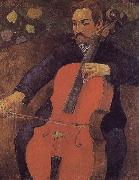Wholesale Oil Painting No Minimum |
|||||||||||
|
|
|||||||||||

|
|||||||||||
|
|
|
||||||||
Paul GauguinFrench 1848-1903 Paul Gauguin Art Locations (born June 7, 1848, Paris, France ?? died May 8, 1903, Atuona, Hiva Oa, Marquesas Islands, French Polynesia) French painter, sculptor, and printmaker. He spent his childhood in Lima (his mother was a Peruvian Creole). From c. 1872 to 1883 he was a successful stockbroker in Paris. He met Camille Pissarro about 1875, and he exhibited several times with the Impressionists. Disillusioned with bourgeois materialism, in 1886 he moved to Pont-Aven, Brittany, where he became the central figure of a group of artists known as the Pont-Aven school. Gauguin coined the term Synthetism to describe his style during this period, referring to the synthesis of his paintings formal elements with the idea or emotion they conveyed. Late in October 1888 Gauguin traveled to Arles, in the south of France, to stay with Vincent van Gogh. The style of the two men work from this period has been classified as Post-Impressionist because it shows an individual, personal development of Impressionism use of colour, brushstroke, and nontraditional subject matter. Increasingly focused on rejecting the materialism of contemporary culture in favour of a more spiritual, unfettered lifestyle, in 1891 he moved to Tahiti. His works became open protests against materialism. He was an influential innovator; Fauvism owed much to his use of colour, and he inspired Pablo Picasso and the development of Cubism. |
||||||||
|
|
||||||||
Cello
Cello Painting ID:: 57399 |
mk256 1893 years 92 x 73 cm mk256 1893 years 92 x 73 cm |
|||||||
|
|
||||||||
|
pablo casals Catalan cellist and composer. He studied at Barcelona from 1887 and made his d??but there in 1891. After further study in Madrid and Brussels his international career began in 1899, when he played Lalos Concerto under Lamoureux in Paris. In 1905 he formed a trio with Thibaud and Cortot, recording works by Schubert and Beethoven. As a soloist Casals was renowned for his beautiful tone and intellectual strength. His playing did much to bring Bach's suites into the repertory. He formed the Orquestra Pau Casals in Barcelona in 1919 but his activities were curtailed by the Spanish Civil War. In 1950 at Prades he returned to music-making and later directed festivals at Perpignan and Puerto Rico. His many pupils included Guilhermina Suggia, with whom he formed a liaison. Casals wrote instrumental works and many choral pieces of a simple, devotional nature. Cello mk270 this painting 1753 vividly show the old style of playing the cello wih the instrument grasped between the legs there in no spike. the bowing technique shows the hand under than over it, unlike the techique favoured by modern cellits. |
||||||||
|
|
||||||||
|
Prev Next
|
||||||||
|
|
||||||||
|
Related Paintings to pablo casals :. |
||||||||
|
|
||||||||
|
CONTACT US |

